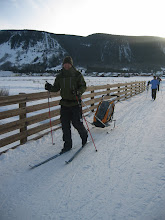Cooperative learning relates very closely to the social learning theories discussed in this week's lesson. Cooperative learning is when students work together to complete a task (Pitler, Hubbell, Kuhn, & Malenoski, 2007). The social learning theories also suggest that learning occurs when students are working on a product while collaborating with others (Laureate Education, Inc., 2008). I explored a few examples of social networking such as face book and twitter. These sites offer both examples of creating a product and collaborating with others. The only problem is ,in most cases, both of these actions are not happening at the same time. I could be missing the actual collaboration all together. I guess I can see adding suggestions to someones social problem online as a problem based activity.
Some of the collaboration tools on the other hand do allow a product to be made while collaboration is occurring. Google Docs, creating multimedia, web quests with partners, and shared calendars allow students to gather information together and create a product. At the end of each application, students are asked to create a product while working with each other. I continue to find the amount of tools on the web to help teachers in the classroom to be amazing. I look forward to learning more.
References
Laureate Education, Inc. (Producer). (2008). Program eight. Social Learning Theories [Motion
picture]. Bridging learning theory, instruction and technology. Baltimore: Author.
Pitler, H., Hubbell, E., Kuhn, M., & Malenoski, K. (2007). Using technology with
classroominstruction that works. Alexandria, VA: ASCD.
Subscribe to:
Post Comments (Atom)

I agree the web tools are amazing. Through this course I am learning so many things to incorporate into the classroom. I also checked out Facebook. Most of what I saw was socializing but not so much about educational learning. But, if our schools required it for the students to be able to collaborate on projects together, it would be a great tool. I think every student I have has an account, so it would be something they were used to and enjoyed. Of course in our district this is a blocked site, as so many others that could be useful are.
ReplyDeleteI have run into problems where past students want to be my friend on facebook. I do not allow this. Too many things can go wrong. I have also had problems with rogue emails being sent using my account. My friends say it is easy for viruses to by sent through facebook.
ReplyDeleteWhen looking at the social networking sites it can be difficult to separate out the good from the bad in terms of construction of meaningful dialog. One example of the power of these tools could be seen with the Haiti earthquake response though. There were meaningful conversations happening, especially on Twitter, that helped to organize aid efforts at specific locations around the country's capital. There were also efforts on Facebook to mobilize people to sign petitions and to reach out to senators in an effort to extend rescue efforts. This is communication with an active purpose to collaboratively create some sort of real world product. The issue with social networking sites, in my opinion, is that we are blocked (as Linda said) from using these sites with our students and, therefore, they do not understand how to use them effectively.
ReplyDeleteTo Chris: I currently have seven friend requests from either current or past students who are still in high school. I, like you, will not friend them. Until there is some sort of clear set of rules on where teachers lie in the social networking world, I will not open myself up for issues surrounding what other people may post on their walls. When dealing with students who are still in school, it seems to me that teachers who friend their students with accounts associated with their personal lives run a fairly large risk. Like you, I am unwilling to run that risk. I have thought, however, about creating a teacher account where the only people I would accept requests from are students. I have been reluctant to do this, though I struggle with the balance between supporting students, especially those in rough situations, and protecting my family. Have you thought at all about a teacher persona in the social networking world?
Sean,
ReplyDeleteIt would be great if there was a facebook for educators. I already have students that don't listen to instructions. I could totally see them leaving their accounts open to the public. The phone calls would pile up. I agree with you. We are taking a huge risk using sites that are not safe guarded for educators.
Wonderful blog & good post.Its really helpful for me, awaiting for more new post. Keep Blogging!
ReplyDeleteSocial Learning